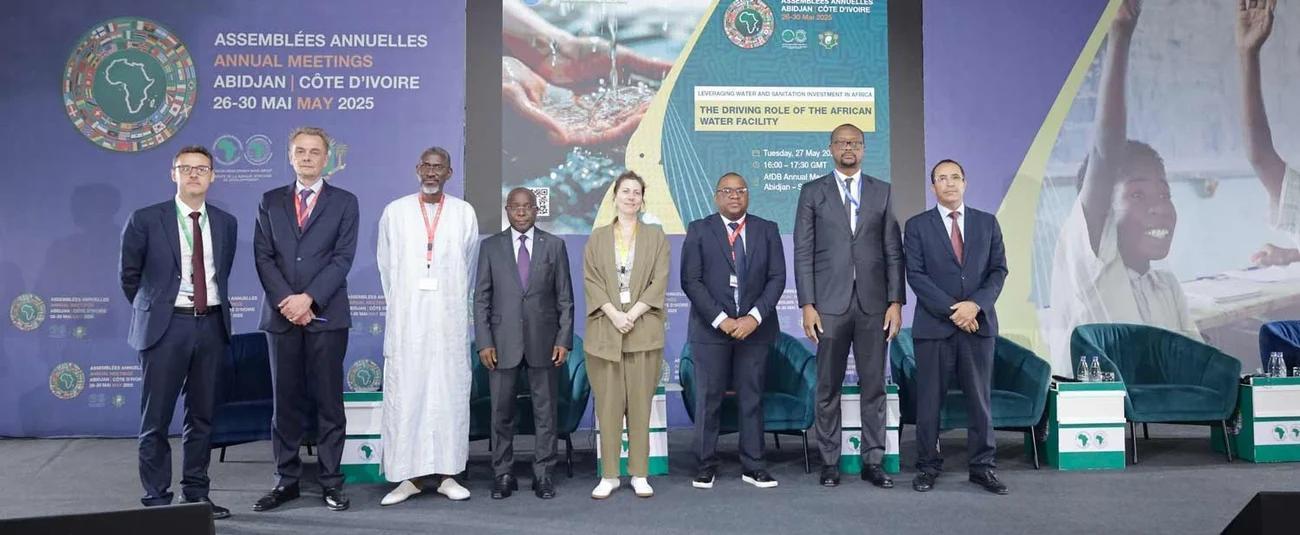Africa-Press – Eritrea. Policymakers and sector experts reviewed the challenges of “Leveraging Water and Sanitation Investment in Africa” on Tuesday 27 May at the African Development Bank Group’s 2025 Annual Meetings.
At this round-table event run by the African Development Bank Group and the African Water Facility, panellists highlighted universal access, project financing and bankability, and the role of the private sector and partnerships as some of the main challenges facing the water and sanitation sector on the continent.
Samuel Blazyk, interim coordinator of the African Water Facility, explained that the body had become a victim of its own success. “Because of its important role, the Facility received over 400 projects, although only 33 were considered priorities out of the 80 that met the conditions,” he said.
As a project preparation fund, the African Water Facility harnesses financing for infrastructure development in the water and sanitation sector in Africa. It provides grants, technical assistance, investment support to governments and partnerships for the implementation of sustainable water projects.
An initiative of the African Ministers’ Council on Water, the African Water Facility is hosted and managed by the African Development Bank. Since 2006, it has provided €220 million in grants covering 148 projects and raised €2.1 billion in downstream investment. These projects have provided 11.3 million people with access to sanitation, improved access to drinking water for 23.2 million people and irrigated two million hectares. The Facility’s current pipeline of projects is valued at €90 million, benefiting 15 African countries.
During the session, Bouake Fofana, Côte d’Ivoire’s Minister of Hydraulics and Sanitation, highlighted a number of challenges that he considers to be priorities: the development of modern, sustainable and inclusive infrastructure, sector governance issues, the low level of financial resources allocated to the sector, and the building of human and technical capacities for project execution and monitoring.
“The Facility plays a central role in ensuring high-quality, technically viable projects that are attractive to partners,” he said. “It is an African tool supporting African priorities that facilitates the harnessing of investment, but it requires political, technical and financial support.”
Mohamed El Azizi, the Bank Group’s Director General for North Africa and former Director of the African Water Facility, emphasised the key role of this mechanism and the importance of innovation in establishing new partnerships.
On the technical side, panellists discussed project design, bankability, sector governance, partnerships and methods of attracting private investment.
Ousseynou Guène, Head of the Water and Sanitation Division at the African Development Bank, bemoaned the inadequacy of studies and delays in the consumption of resources. He noted that “the countries closest to achieving the targets are integrating the investment component without waiting for support, but unfortunately, there’s a reliance on lenders for upstream preparations.”
Richard Matikanya, Deputy Executive Director of the Children’s Investment Fund Foundation (CIFF), pointed out that “of the 400 million people who have no access to water, 50% are children,” going on to stress the need to “explore more partnerships” with the African Development Bank.
“Consultations must involve partners from the outset of projects, because Africa does not sufficiently incorporate aspects related to climate risks, and therefore does not attract enough climate financing,” added Guène.
Partners’ voices were also heard, via Agnes Moser, Advisor to the Executive Director of the African Development Bank, representing Argentina, Austria, Brazil, Japan and Saudi Arabia, on behalf of the Austrian Finance Minister. She praised the quality of the Facility’s partnership and its capacity to harness investment and prepare high-quality projects.
Finally, Tarek Bouhlel, Director General of African Cooperation at the Tunisian Ministry of Economy and Planning, presented his country’s Strategy 2050 for Water and Sanitation, which constitutes a benchmark for the projects presented.
For More News And Analysis About Eritrea Follow Africa-Press







